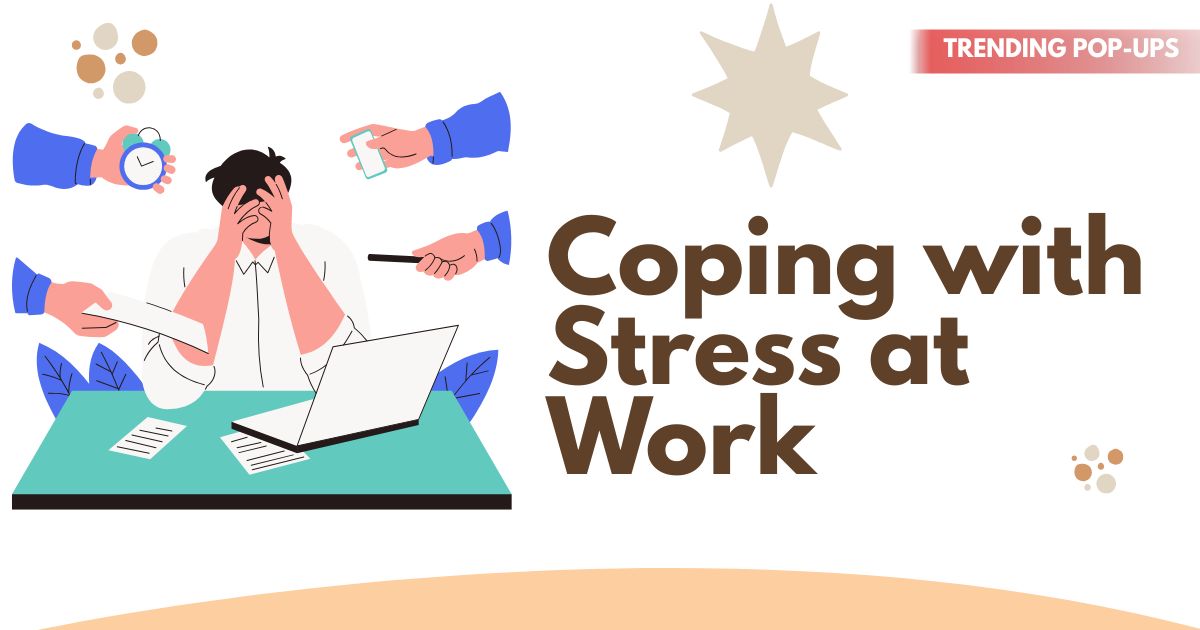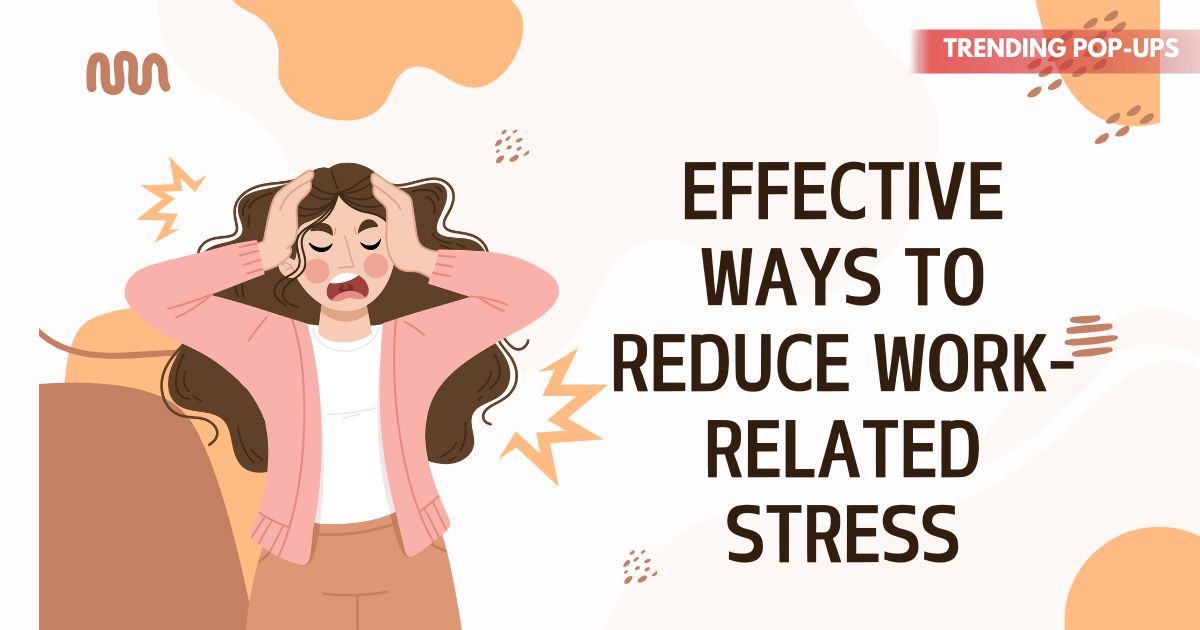Workplace stress has become a universal challenge in today’s fast-paced environment. Tight deadlines, heavy workloads, and constant digital connectivity often leave employees mentally drained and physically exhausted. While some stress can push us to perform better, chronic work-related stress negatively impacts health, productivity, and overall well-being. The good news is that by adopting effective strategies, you can manage stress and create a healthier work-life balance. This article explores practical ways of coping with stress at work, backed by science and simple daily habits.
Understanding Workplace Stress
Stress at work occurs when job demands exceed a person’s ability to cope comfortably. Common triggers include:
-
Excessive workload
-
Lack of control over tasks
-
Unclear expectations
-
Workplace conflicts
-
Long hours or poor work-life balance
Recognizing these stressors is the first step toward developing solutions.
Effects of Workplace Stress on Health
Work-related stress doesn’t just affect performance—it has real health consequences. Some of the most common include:
-
Physical Symptoms: Headaches, muscle tension, fatigue, and sleep disturbances.
-
Mental Symptoms: Anxiety, depression, irritability, and burnout.
-
Behavioral Symptoms: Poor focus, procrastination, increased errors, or withdrawal from colleagues.
If ignored, chronic stress can lead to serious issues such as hypertension, weakened immunity, and cardiovascular disease.
Practical Strategies for Coping with Stress at Work
1. Prioritize and Organize Tasks
Effective time management can reduce unnecessary pressure. Use tools like to-do lists, planners, or digital apps to break tasks into manageable steps. Setting realistic goals ensures progress without overwhelming yourself.
2. Take Short Breaks
Continuous work reduces focus and productivity. Short breaks every 60–90 minutes help reset your mind. Even a five-minute walk, deep breathing, or stretching at your desk can ease tension.
3. Practice Deep Breathing and Mindfulness
Breathing exercises lower heart rate and calm the nervous system. Mindfulness meditation, even for a few minutes, enhances emotional control and reduces stress reactivity.
4. Create a Supportive Work Environment
Good relationships with colleagues and managers play a crucial role in reducing workplace stress. Don’t hesitate to ask for help, delegate tasks, or communicate openly about challenges.
5. Maintain Healthy Boundaries
Avoid bringing work home whenever possible. Establish clear boundaries by switching off email notifications after work hours. Respecting personal time helps restore energy and prevents burnout.
6. Focus on Physical Health
Your body handles stress better when it’s healthy. Prioritize:
-
Exercise: At least 30 minutes of activity daily to release endorphins.
-
Balanced Diet: Avoid excessive caffeine or junk food; instead, fuel your body with whole foods.
-
Sleep: Aim for 7–9 hours of quality sleep for optimal recovery.
7. Develop Problem-Solving Skills
Not all stressors can be eliminated, but you can learn to handle them better. Break challenges into smaller steps, weigh solutions, and take proactive action instead of dwelling on problems.
8. Seek Professional Help if Needed
If workplace stress becomes overwhelming, consider talking to a therapist, counselor, or employee assistance program (EAP). Professional guidance can provide coping strategies tailored to your needs.
Coping with Stress in Remote Work Settings
With remote and hybrid work models, stress has taken new forms: isolation, blurred work-life boundaries, and digital fatigue. To cope effectively:
-
Create a dedicated workspace.
-
Follow a structured daily routine.
-
Schedule regular breaks away from screens.
-
Stay socially connected with colleagues through video calls or chats.
Long-Term Benefits of Managing Work Stress
Consistently applying stress-management strategies leads to:
-
Better job satisfaction.
-
Improved mental and physical health.
-
Stronger professional relationships.
-
Higher productivity and creativity.
-
A sustainable career with less risk of burnout.
Also Read : Importance of Morning Stretching
FAQs
Q1. What are quick ways to reduce stress at work?
Take deep breaths, go for a short walk, or listen to calming music. Even a five-minute pause can reset your mood.
Q2. How can I avoid burnout?
Set boundaries, take breaks, and ensure you balance work with personal hobbies, exercise, and rest.
Q3. Does exercise really help with workplace stress?
Yes. Physical activity releases endorphins that naturally reduce stress and improve mood.
Q4. Should I talk to my manager about stress?
Yes, open communication can help managers understand your challenges and may lead to workload adjustments or support.
Q5. Can stress at work affect sleep?
Absolutely. High stress disrupts sleep cycles. Relaxation techniques before bed can help restore restful sleep.



